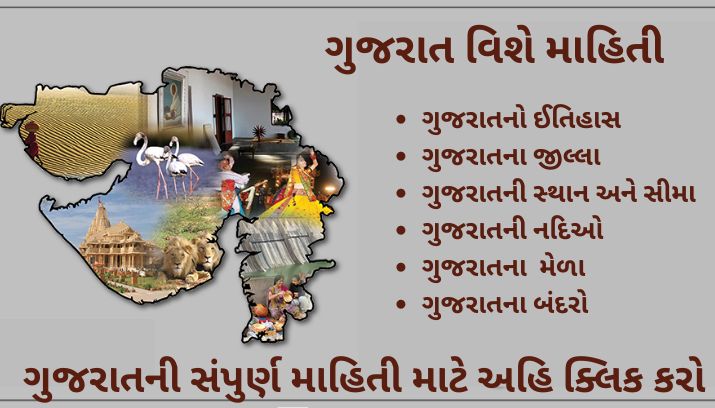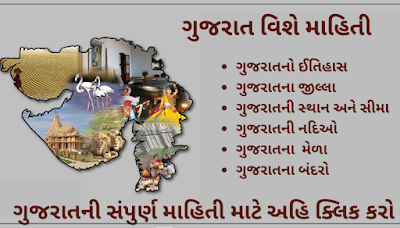INFORMATION ABOUT HISTORY AND CULTURE OF GUJARAT IN PDF FORMAT
Gujarat: A Vibrant Tapestry of Culture, History, and Innovation
Nestled along the western coast of India, Gujarat is a state that resonates with a vibrant cultural heritage, a rich history dating back millennia, and a contemporary landscape brimming with innovation.
Stretching from the Arabian Sea to the Thar Desert, Gujarat is not only geographically diverse but also boasts a unique blend of traditions, languages, and lifestyles that make it a microcosm of India itself.
**Historical Legacy:**
The history of Gujarat traces back to ancient times, with evidence of human habitation dating back to the Indus Valley Civilization. Over the centuries, Gujarat emerged as a prominent center of maritime trade, connecting the Indian subcontinent with the Middle East, Africa, and Europe. The port city of Lothal stands as a testament to this maritime legacy, with its well-planned dockyards and artifacts revealing extensive trade networks.
Gujarat flourished under the rule of various dynasties, including the Mauryas, Guptas, and Chalukyas. However, it was during the medieval period that the region witnessed a cultural renaissance under the patronage of the Solanki dynasty. The architectural marvels of the Sun Temple at Modhera, the stepwells of Adalaj and Rani ki Vav, and the grand forts of Champaner-Pavagadh showcase the architectural prowess of this era.
**Cultural Melting Pot:**
Gujarat’s cultural mosaic is a blend of indigenous traditions and influences from across the globe. The state is renowned for its colorful festivals, including Navratri, Diwali, and Uttarayan (the kite festival), which bring communities together in joyous celebration. Garba, a traditional folk dance performed during Navratri, is not just a cultural expression but also a symbol of unity and camaraderie.
The culinary landscape of Gujarat is equally diverse, offering a delectable array of vegetarian dishes that reflect the state’s agrarian heritage. From the savory dhokla and fafda to the sweet indulgence of jalebi and shrikhand, Gujarati cuisine tantalizes the taste buds with its myriad flavors and textures. The state’s coastal regions are also famous for seafood delicacies, showcasing the influence of maritime trade on its culinary traditions.
**Economic Powerhouse:**
In recent decades, Gujarat has emerged as an economic powerhouse, attracting investment from both domestic and international sectors. The state’s strategic location, robust infrastructure, and business-friendly policies have propelled its growth across various sectors, including manufacturing, petrochemicals, and information technology.
The establishment of industrial clusters such as the Gujarat International Finance Tec-City (GIFT City) and the Gujarat Industrial Development Corporation (GIDC) has fostered innovation and entrepreneurship, positioning Gujarat as a leader in India’s industrial landscape. Moreover, initiatives like Vibrant Gujarat Summits have provided a platform for showcasing investment opportunities and forging partnerships on a global scale.
ગુજરાતના જીલ્લાઓ વિશેની માહિતી CLICK HERE
ગુજરાતના જીલ્લાઓ વિશેની માહિતી-2 CLICK HERE
**Innovation and Sustainability:**
Gujarat’s commitment to innovation and sustainability is exemplified by initiatives such as the Solar Park at Charanka, one of the largest solar power generation facilities in the world. Harnessing the state’s abundant sunlight, this project not only contributes to India’s renewable energy goals but also underscores Gujarat’s proactive approach towards environmental conservation.
Furthermore, Gujarat’s emphasis on sustainable development is evident in its efforts to promote eco-tourism and wildlife conservation. The Gir Forest National Park, home to the endangered Asiatic lion, stands as a symbol of Gujarat’s dedication to preserving its natural heritage. Additionally, initiatives like the Rann Utsav, a cultural festival held amidst the starkly beautiful landscape of the Rann of Kutch, promote responsible tourism while showcasing the region’s rich cultural tapestry.
**Challenges and Opportunities:**
Despite its many successes, Gujarat faces several challenges, including environmental degradation, urban sprawl, and socio-economic disparities. Rapid industrialization and urbanization have exerted pressure on natural resources and infrastructure, necessitating sustainable development strategies that balance economic growth with environmental conservation.
Moreover, while Gujarat’s cities have witnessed remarkable progress, rural areas continue to grapple with issues such as poverty, inadequate healthcare, and limited access to education. Addressing these challenges requires concerted efforts towards inclusive development, empowering marginalized communities, and bridging the rural-urban divide.
However, amidst these challenges lie immense opportunities for Gujarat to continue its trajectory of growth and development. By leveraging its strengths in sectors such as renewable energy, agribusiness, and tourism, Gujarat can chart a path towards a more inclusive and sustainable future.
**Conclusion:**
In conclusion, Gujarat epitomizes the cultural richness, historical legacy, and economic dynamism that define India’s identity on the global stage. From its ancient maritime trade routes to its modern industrial hubs, Gujarat’s journey is a testament to the resilience and adaptability of its people. As the state navigates the complexities of the 21st century, Gujarat stands poised to embrace the opportunities of tomorrow while staying rooted in its timeless traditions and values.






